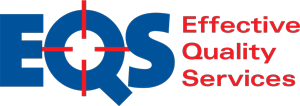ISO 9001 internal auditor training goes beyond simply explaining clauses of the standard. It equips participants with practical skills and knowledge to add real value. Below are the core competencies typically covered in a comprehensive internal auditor course:
- ISO 9001 Standard Structure and Requirements
- Detailed review of each clause in ISO 9001, focusing on intent and practical application.
- Interpretation of terms such as quality policy, objectives, process performance indicators, and documented information.
- Audit Planning and Preparation
- Defining audit scope, objectives, criteria, and methods.
- Creating audit plans and checklists that align with organizational processes.
- Understanding the role of risk based thinking in audit preparation.
- Executing the Audit
- Conducting opening meetings to set expectations and confirm logistics.
- Interview techniques to gather factual evidence from process owners.
- Observing operations and collecting objective evidence.
- Sampling methods to evaluate process effectiveness.
- Nonconformity Identification and Reporting
- Differentiating between major and minor nonconformities.
- Writing clear, concise, and objective nonconformity reports.
- Linking nonconformities to ISO 9001 clauses and process risks.
- Root Cause Analysis and Corrective Action
- Applying tools such as the five whys or fishbone diagrams to determine root causes.
- Developing effective corrective action plans that prevent recurrence.
- Verifying corrective action effectiveness during follow up audits.
- Audit Follow-up and Closing
- Conducting closing meetings to present audit findings and recommendations.
- Communicating improvement opportunities in a constructive manner.
- Documenting audit results and ensuring timely distribution to relevant stakeholders.
- Continuous Improvement and Best Practices
- Emphasizing the Plan Do Check Act cycle.
- Sharing best practice methods for process improvement.
- Encouraging collaboration between auditors, process owners, and management.

